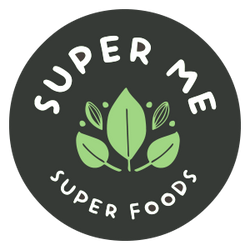If you work indoors and wear sunblock regularly, you’re doing a good job of protecting yourself from skin cancer, but chances are you could have some level of vitamin D deficiency.
One thing I come across more and more in clinic now is vitamin D deficiency. We are told to wear sunscreen from a young age. Yes it can protect you from skin cancer, but did you know that sunscreen blocks your body from absorbing vitamin D from the sun? And don’t get me started on the amounts of toxins in some sunscreens and the potential damage they can cause to your body (topic for another day).
This vital nutrient is one many people don’t really think of, yet populations around the world are suffering from vitamin D deficiency. It’s crucially important to assist in the maintenance of a healthy heart muscle, bone mineralisation, skin conditions, mood/cognitive function, immune function, inflammatory response, enhance calcium absorption and more.
I’m not saying that you should stop protecting yourself against skin cancer, but if you’re suffering from any of the below symptoms it may be worth getting your vitamin D levels checked.
Symptoms of deficiency include:
- Frequent colds and flu’s, respiratory tract infections
- Fatigue, tiredness
- Mood disorders
- Inadequate bone growth
- Muscle weakness and aches
- Frequent bone break and fractures
So, how can you get more vitamin D?
You can make sure you're getting enough vitamin D by obtaining it in a few ways:
- Exposure to sunlight
Vitamin D is produced in the skin when exposed to UVB light. On average, exposing a large area of your body (stomach/back) in the sun (without sunscreen) for 15 minutes a few times a week will keep your vitamin D levels in check. If that is not possible exposing your arms, face and even legs in the sun for 5-10 minutes most days will suffice.
- Food sources
While there are not too many foods that naturally contain vitamin D, good sources include fatty fish such as tuna, salmon, sardines, and mackerel. It can also be found in eggs (specifically the yolks) and in liver.
- Natural Supplements
If sun exposure is not an option, make sure you supplement. Taking a daily supplement of vitamin D is an easy and effective way to maintain adequate levels in the body. When supplementing with vitamin D there are two choices: D2 and D3, D2 is a vegetable derived form and D3 is an animal derived form (what your body makes when exposed to the sun). I recommend supplementing with vitamin D3. Take this with a meal that includes some healthy fats. This is because vitamin D is a fat-soluble vitamin, which means you need to have some fat with it for it to be absorbed. The RDI is 400iu, however the body uses much more of this vitamin each day for general functioning. To ensure optimal blood levels in most people I would recommend an intake of 2000iu+ for general health and wellbeing.
